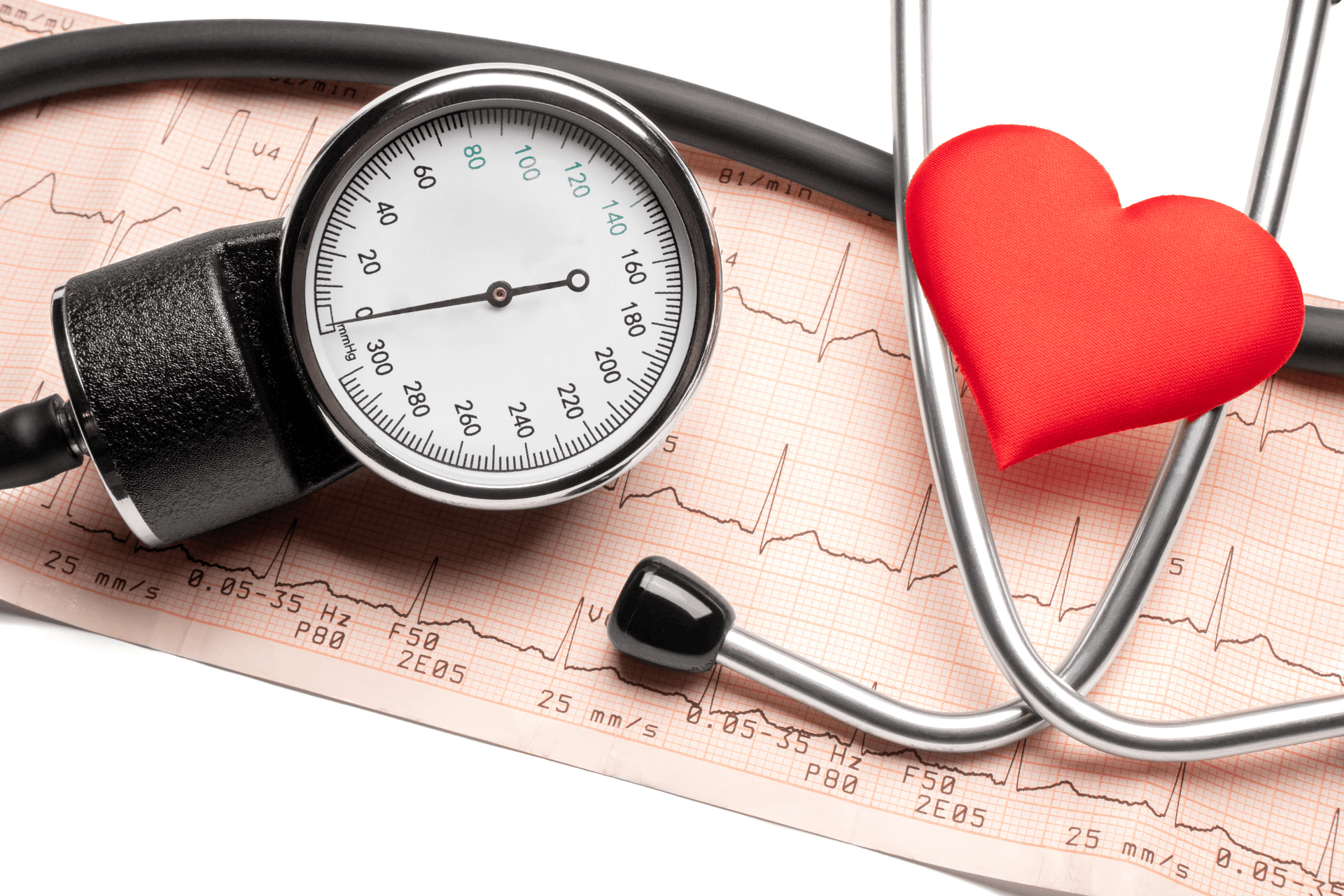Does Gabapentin Lower Blood Pressure?
Gabapentin is a medicine many people take for nerve pain, seizures, or anxiety. But if you are worried about your blood pressure, you might wonder if gabapentin can help [...]
Read More
Medically reviewed by Alan Lucks | MD, Alan Lucks MDPC Private Practice - New York on November 18th, 2025.
This anticonvulsant medication works by blocking voltage-gated calcium channels in nerve tissue, which has no direct mechanism of action on blood vessels or cardiac function.
Clinical studies show no statistically significant blood pressure changes in patients taking standard doses (300-3600mg daily), even in long-term treatment protocols.
Dizziness affects approximately 17-28% of users and results from central nervous system effects rather than hypotension—blood pressure readings typically remain stable.
Pain reduction from neuropathic conditions may indirectly lower stress-related blood pressure spikes, but this secondary effect cannot replace dedicated antihypertensive therapy.
Proven blood pressure medications like ACE inhibitors reduce systolic pressure by 10-15 mmHg on average, while lifestyle modifications can achieve 5-10 mmHg reductions—neither effect occurs with this nerve pain medication.
Gabapentin is a medicine many people take for nerve pain, seizures, or anxiety. But if you are worried about your blood pressure, you might wonder if gabapentin can help lower it. Understanding how gabapentin works and its effects on blood pressure can help you manage your health better. This article explains what gabapentin does, whether it affects blood pressure, and what to do if you have concerns.
 What Is Gabapentin and How Does It Work?
What Is Gabapentin and How Does It Work?Gabapentin is a prescription drug often used to treat nerve pain, epilepsy, and sometimes anxiety. It works by calming nerve activity in the brain and nervous system. This helps reduce pain signals and seizures. Doctors prescribe gabapentin for conditions like shingles pain, diabetic nerve pain, and certain types of seizures. Originally developed as an anticonvulsant, gabapentin has gained popularity for its effectiveness in managing neuropathic pain, which can be particularly challenging to treat with traditional pain relievers. Patients often report significant improvements in their quality of life when using gabapentin, as it can help alleviate chronic pain that interferes with daily activities.
Gabapentin changes how nerves send signals. It does not directly affect the heart or blood vessels, which control blood pressure. Instead, it targets nerves to reduce pain or seizures. Because of this, gabapentin is not usually thought of as a medicine for blood pressure control. The drug achieves its effects by binding to specific receptors in the brain, which modulate the release of neurotransmitters that are involved in pain perception and seizure activity. This mechanism can lead to a decrease in the intensity and frequency of nerve pain, providing relief for those suffering from conditions like fibromyalgia and postherpetic neuralgia. Gabapentin is often well-tolerated, with fewer side effects compared to traditional opioids, making it a preferred choice for many healthcare providers when addressing chronic pain issues.
Most studies and medical sources say gabapentin does not lower blood pressure in a meaningful way. It is not prescribed to treat high blood pressure. However, some people might notice small changes in blood pressure when taking gabapentin, but these are not common or well understood. Clinical trials have primarily focused on its efficacy for neuropathic pain and seizure disorders, leaving a gap in comprehensive research regarding its cardiovascular effects. This lack of targeted studies means that while anecdotal evidence exists, it is not robust enough to draw definitive conclusions about gabapentin's impact on blood pressure levels.
Gabapentin can cause side effects like dizziness or feeling lightheaded. These symptoms might happen if blood pressure drops too low, but this is rare. If you feel dizzy or faint while taking gabapentin, it is important to tell your doctor. They can check if your blood pressure is affected or if the medicine needs adjusting. It's also worth noting that individuals with pre-existing conditions, such as dehydration or those on other medications that lower blood pressure, may experience these symptoms more acutely. Monitoring your overall health and any concurrent medications is crucial when starting gabapentin, as interactions can sometimes lead to unexpected side effects.
In some cases, gabapentin might indirectly affect blood pressure. For example, if gabapentin helps reduce anxiety or pain, this might lower stress and reduce blood pressure slightly. But this is a side effect of feeling better overall, not a direct effect of the medicine on blood pressure. The relationship between mental health and physical health is complex; alleviating chronic pain or anxiety can lead to improved lifestyle choices, such as better sleep and increased physical activity, which can also contribute to healthier blood pressure levels. Understanding this interplay can help patients appreciate the broader benefits of their treatment plan, even if gabapentin itself does not directly lower their blood pressure.
If you have high blood pressure, gabapentin alone is not the right medicine to control it. Blood pressure usually needs specific treatments like lifestyle changes or blood pressure medicines prescribed by your doctor. Eating healthy, exercising, and reducing salt can also help keep blood pressure in check. Incorporating foods rich in potassium, such as bananas, sweet potatoes, and spinach, can also aid in lowering blood pressure. Maintaining a healthy weight is crucial, as excess body weight can contribute to elevated blood pressure levels. Regular monitoring at home can help you keep track of your progress and make necessary adjustments to your treatment plan.
If you have questions about your medicines or blood pressure, you can get fast, reliable help online. Doctronic.ai offers AI-powered doctor visits and telehealth video calls with real doctors 24/7. You can ask about gabapentin, blood pressure, or any health concern without waiting days for an appointment. This convenience is especially beneficial for those with busy schedules or those who may have difficulty accessing traditional healthcare facilities. Telehealth can provide a sense of comfort and privacy, allowing patients to discuss sensitive health issues from the comfort of their own homes.
If you experience serious symptoms like very low blood pressure, chest pain, or severe dizziness, seek emergency care. For regular blood pressure checks or medicine changes, a telehealth visit through Doctronic.ai can be a convenient first step before seeing a doctor in person. It's important to recognize that while telehealth is a great resource, some health concerns require a physical examination or diagnostic tests that can only be performed in person. If your blood pressure readings remain consistently high or if you experience new symptoms, don't hesitate to schedule an in-person visit to ensure comprehensive care and management of your health condition.
 Gabapentin and Other Medicines: What You Should Know
Gabapentin and Other Medicines: What You Should KnowGabapentin can interact with other medicines you take. Some blood pressure medicines might work differently if you take gabapentin at the same time. Always tell your doctor about all the medicines and supplements you use. This helps avoid problems and keeps your treatment safe.
Keep track of your blood pressure regularly, especially if you start or stop gabapentin. If you notice changes or new symptoms, contact your healthcare provider. Using easy tools like home blood pressure monitors can help you stay informed about your health.
Gabapentin is not designed to lower blood pressure. While it may cause some side effects that affect how you feel, it does not directly reduce or control blood pressure. If you have high blood pressure, it is important to follow your doctor’s advice and take the medicines prescribed for it.
For quick answers and personalized care, telehealth services like Doctronic.ai provide access to AI-powered medical help and real doctors anytime you need. This makes managing your health easier and faster.
Low blood pressure is not a common side effect of gabapentin. Some people may feel dizzy or lightheaded, which can be related to blood pressure changes, but this is rare.
Gabapentin is generally safe for people with high blood pressure, but you should always check with your doctor before starting or stopping any medication.
Yes, gabapentin can interact with some medicines. It is important to tell your doctor about all the medicines you take to avoid any problems.
If you feel dizzy, sit or lie down to prevent falls. Contact your healthcare provider to discuss your symptoms and see if your medicine needs adjustment.
Doctronic.ai offers fast AI-powered doctor visits and telehealth video calls with licensed doctors 24/7. This is a convenient way to get answers and care.
This medication is specifically designed for nerve-related conditions and lacks the cardiovascular mechanisms needed for blood pressure control. Patients with hypertension require evidence-based treatments that directly target blood vessel function and cardiac output. If you're experiencing symptoms or have questions about medication interactions, Doctronic can provide personalized guidance.
Gabapentin is a medicine many people take for nerve pain, seizures, or anxiety. But if you are worried about your blood pressure, you might wonder if gabapentin can help [...]
Read More